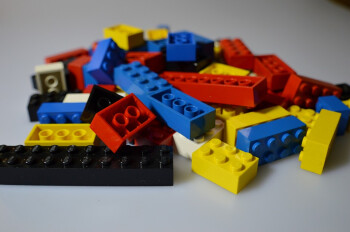In this week's episode we will discuss something that ought to precede any attempt to record your music. Considered optional by some, pre-production is often ignored by beginners. And yet they are the ones who stand to gain the most from it...
One step at a time
While there are no absolute rules, the production of a musical work can be broken down into seven stages, broadly speaking:
- Composition: the creation of the main melody, writing of the lyrics, chord progression, etc.
- Arrangement: “secondary” instrumental accompaniment aimed at improving the composition.
- Pre-production: our topic today, which I’ll explain in detail later on.
- Recording: the main goal of this entire series.
- Editing: correction of any eventual imperfections in the performance with techniques such as comping, time delay, or even pitch shifting.
- Mixdown: read our article series dedicated to the subject.
- Pre-mastering or mastering: read our article series dedicated to the subject.
Each of these stages is important and their results depend largely on the quality of the work done in the previous stages. I don’t think it’s necessary to stress the importance of having a good composition with an adequate arrangement as the basis to work from. However, pre-production might be something completely new to you. What is it and what is it good for? I’ll tell you next week…!
I’m only joking, read on!
The indispensable option
When we talk about pre-production we are actually already talking about a recording of some sort. The difference is that your goal here is not get the best sound quality or performance. The idea is rather to see how the composition/arrangement works and assess whether the song is ready to be put down to a permanent format. Hence, it is important to record and/or program every little thing to see if it all fits together nicely and is going in the direction you want it to go. This is what lets you judge the appropriateness of the orchestration. If there are many instruments fighting for the same frequency range, you might want to have this or that melody played by another instrument that creates less conflict. It’s also at this stage that you can assess the suitability of effects such as chorus, distortion, delay, etc. On the other hand, if the structure of the composition itself doesn’t have the emotional impact you want, this is the right moment to make any changes. Finally, working on the sound of each instrument will allow you to make better decisions towards the final recording, as we already saw in the article dedicated to the Golden rule #1.
As a way of example, let me tell you about my personal experience with my own band. I’m the main composer, but also the guitarist and singer. This means I play the guitar and sing, but I also know how to play some piano and programming rhythmic parts is no biggie for me. Consequently, for pre-production I use virtual instruments for the drums, the bass and the keyboards. I also record the main vocals and backing vocals without worrying too much about the sound quality, I just grab my SM57 and get it done. For guitars, I usually don’t bother recording an amp, I just plug into my soundcard and use virtual amps. This allows me to modify the structure of the song, as well as the texture of each element, right from within my DAW. Which gives me the opportunity to try out different possibilities and determine the direction where I want to go, making my life a lot easier when the time comes to move into the studio. In fact, if I’m satisfied with the pre-production and the recording session is faithful to it, chances are I will come out really happy out of the studio. Not to mention how much easier this will make the mixdown session.
And the best part is that a good pre-production has a lot of other advantages. It can be an excellent working tool for all the musicians. Moreover, if you export the pre-production session as stems, you can use them as backing tracks during the recording, with the added benefit that you can personalize the headphone mix for each musician. Isn’t life beautiful?
And that’s that…I hope you can now really grasp the importance of putting some effort into the pre-production before any recording. See you next week!

